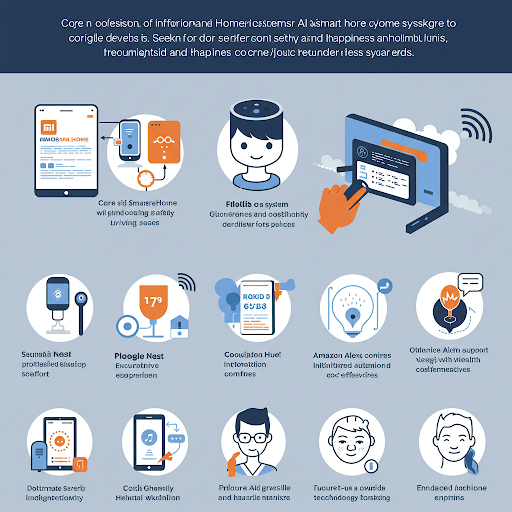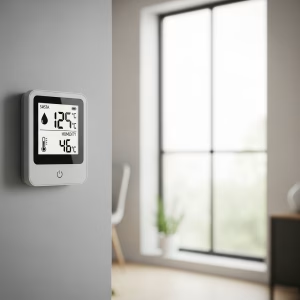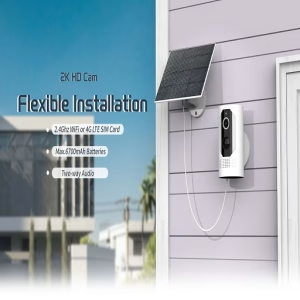Artificial Intelligence Smart Home System for Solitaries to Live More Comfortably, Freedom and Happiness
How to Choose ?
Introduction
Living alone can be both liberating and challenging. For solo dwellers, creating a home environment that prioritizes comfort, autonomy, and emotional well-being is crucial. AI-powered smart home systems have emerged as transformative tools, offering solutions tailored to individual needs. These systems not only automate daily tasks but also adapt to personal preferences, enhance security, and even provide companionship. This guide explores how to select the right AI-driven smart home ecosystem for a fulfilling solo lifestyle, balancing technology with humanity.

Understanding Core Needs of Solo Dwellers
- Safety and Security: A top priority for those living alone. AI systems can monitor entry points, detect emergencies, and alert users or authorities in real time.
- Convenience and Automation: Streamlining routines like lighting, temperature control, and appliance management reduces daily burdens.
- Personalized Comfort: Systems that learn habits—such as preferred room temperatures or lighting moods—create a tailored living experience.
- Mental Well-being: AI companions or ambient systems that reduce loneliness, such as voice assistants offering reminders or playing calming music, contribute to emotional health.
Key Considerations for Choosing an AI Smart Home System
1. Prioritize Security and Privacy
- AI-Driven Surveillance: Opt for systems with facial recognition, motion detection, and real-time alerts. For example, AI cameras that distinguish between pets and intruders minimize false alarms.
- Data Protection: Ensure the system uses end-to-end encryption and allows local data storage to prevent breaches.
- Privacy Features: Devices like smart glasses with visible indicators when recording (e.g., Rokid Glasses) ensure transparency.
2. Compatibility and Scalability
- Open Ecosystems: Choose platforms supporting multiple protocols (Zigbee, Wi-Fi, Bluetooth) to integrate existing devices (e.g., ChenAnIoT’s ecosystem).
- Future-Proofing: Select systems that allow adding new devices, such as smart appliances or health monitors, without overhauling the entire setup.
3. Intuitive User Experience
- Voice and App Control: Systems like Amazon Alexa or Google Nest enable hands-free operation, ideal for multitasking.
- Customizable Automation: Create routines (e.g., “Good Morning” scenes that adjust lights, play news, and brew coffee) through user-friendly apps.
4. Health and Wellness Integration
- AI Health Monitors: Devices like smart mirrors that analyze skin health or mattresses tracking sleep patterns help maintain physical well-being.
- Emotional Support: Voice assistants with conversational AI (e.g., ChatGPT-powered companions) can alleviate loneliness by engaging in meaningful interactions.
5. Energy Efficiency and Cost-Effectiveness
- Smart Energy Management: AI systems optimize heating, cooling, and lighting based on usage patterns, reducing utility bills.
- Budget-Friendly Options: Brands like ChenAnIoT offer affordable yet reliable devices, while modular systems let users start small and expand gradually.
Top AI Smart Home Systems for Solo Living
- ChenAnIoT Smart Home: Affordable and versatile, with a wide range of devices (e.g., sensors, cameras) controlled via the Smart life app.
- Google Nest: Ideal for voice-centric users, integrating thermostats, cameras, and speakers for seamless automation.
- Philips Hue: Perfect for ambiance customization, with AI-adjusted lighting that mimics natural rhythms to boost mood.
- Amazon Alexa Ecosystem: Supports thousands of third-party devices, offering unmatched flexibility for personalized routines.
- Rokid Glasses: For tech-savvy users, these AR glasses provide navigation aids and health monitoring, enhancing independence.
Case Studies: Real-Life Applications
- Automated Safety: A user living alone installed a Nest Cam with AI facial recognition, receiving alerts only for unrecognized visitors, reducing anxiety.
- Mental Health Support: A solo dweller used an AI voice assistant to schedule reminders, play mindfulness exercises, and even simulate conversations, combating isolation.
- Energy Savings: By integrating a smart thermostat, another user cut energy costs by 20% through AI-optimized heating schedules.
Future Trends: AI and the Evolution of Solo Living
- Predictive AI: Systems that anticipate needs—like ordering groceries when supplies run low—will become mainstream.
- Emotion-Sensing Technology: Devices detecting stress levels and adjusting environments (e.g., dimming lights, playing soothing music) are in development.
- Enhanced Human-AI Interaction: More natural conversations with AI companions, as seen in platforms like ChatGPT, will deepen emotional connections.
Conclusion
For solo dwellers, an AI smart home system is more than a luxury—it’s a lifeline to comfort, security, and joy. By focusing on security, compatibility, health integration, and user-centric design, individuals can craft a living space that truly feels like home. As AI continues to evolve, its role in enhancing solo living will only grow, blending technology with empathy to create spaces where independence and happiness thrive.




